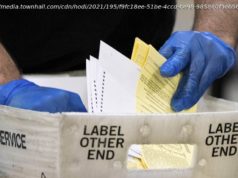Justices leave door open for future request to stop move from federal low-security facility.
The Supreme Court on Tuesday refused the Trump administration’s request to shelve a judge’s order that hundreds of at-risk inmates at a federal prison in Ohio be expeditiously moved because of an outbreak of coronavirus.
The court left open the door for the administration. It said a new filing could be appropriate later after the case proceeded through lower courts.
Justices Clarence Thomas, Samuel A. Alito Jr. and Neil M. Gorsuch would have granted the administration’s request.
Courts across the country are seeing a rising number of lawsuits involving the covid-19 risk to prisoners. But the Trump administration had asked the Supreme Court to stop an order from a federal judge in Ohio regarding an outbreak at one of the worst hit, the Elkton Federal Correctional Institution.
One in four inmates tested were positive for the virus, and nine inmates have died. Based on a directive from U. S. District Judge James Gwin, prison officials identified 837 prisoners who were particularly vulnerable because of their age or underlying medical conditions.
The low-security prison houses inmates in dormitory-like settings, which lawyers said makes an outbreak of the virus more likely to spread to inmates and corrections workers.
“There is a continued risk of harm to others, including prison staff, if inmates remain in the prison and the virus continues to thrive among the dense inmate population,” Gwin wrote last month.
Last week, he gave corrections officials new deadlines. He noted that even Attorney General William P. Barr had said prison officials should be identifying prisoners who could be released on home detention or by other means.
“By thumbing their nose at their authority to authorize home confinement, [officials] threaten staff and they threaten low security inmates,” Gwin wrote.
Home
United States
USA — Criminal Supreme Court for now will not stop Ohio order to identify prisoners...





